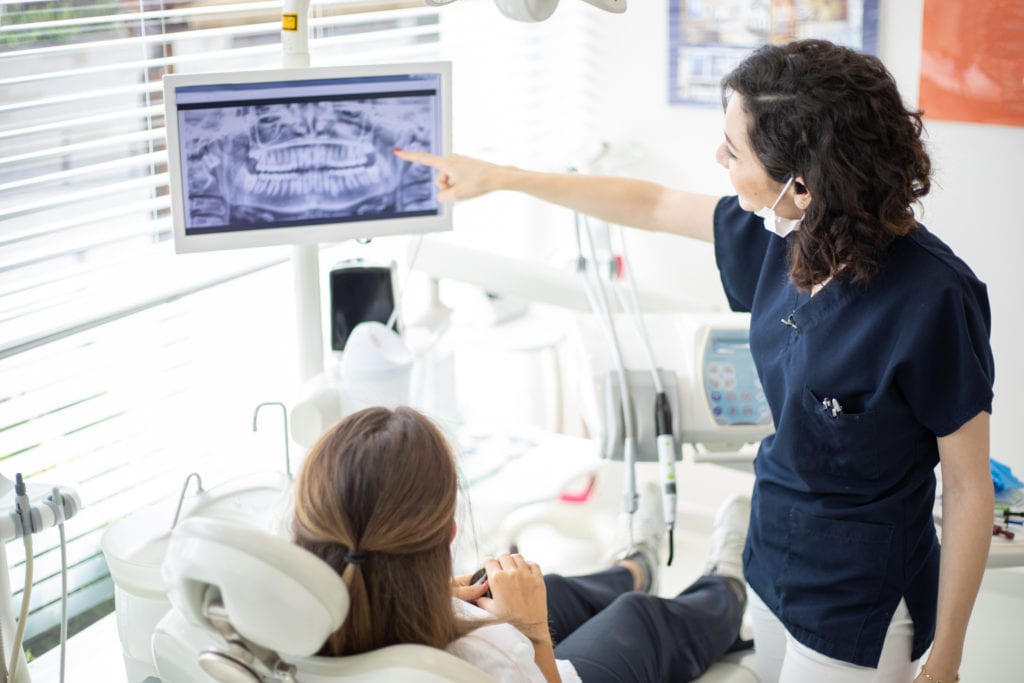The temporomandibular joint (TMJ) can cause dental problems due to injury or other issues. The temporomandibular joint is the hinge that connects the lower jaw to the skull, and it includes a disc of cartilage that cushions the jaw during movement. Temporomandibular joint disorders (TMD) affect the function of the bite and jaw.
They can also cause painful symptoms and can even damage your teeth. Dr. Haim Fedida of Fedida Family Dentistry and Dental Spa provides TMJ treatment in Jackson Heights and East Elmhurst, NY. He helps revitalize smiles with restorative dentistry.

TMD Symptoms
There are many common symptoms of temporomandibular joint disorders. The main signs of TMD are:
- Teeth clenching and grinding (bruxism).
- Jaw pain or tenderness.
- Ear pain and/or ringing in ears.
- Frequent migraines, and morning headaches.
- Facial pain and muscle tension. Pain on one or both sides of the head, jaw, or neck.
- Difficulty chewing food. Pain when chewing or opening your mouth.
- Joint locking or popping sound when opening and closing your mouth.
Please contact our office if you have any of these signs of TMJ disorders. We will help find the appropriate solution for your needs.
TMJ Treatment Options
We can provide treatment for TMJ disorders in our Jackson Heights office using the following options:
- Oral appliances/Splints: Similar to mouthguards, oral appliances protect the teeth from injury. They also prevent the upper and lower jaw from grinding together. Treating bruxism with oral appliances worn at night can prevent tooth wear, pain, damage, and muscle spasms. Dr. Fedida can provide durable night guards using dental impressions of your teeth for a precise fit. You can wear splints during the day to help with symptoms of muscle tension and clenching.
- Restorative dentistry: Repairing tooth damage or making slight changes to tooth structure will allow your teeth to make better contact when biting down. Addressing bite issues can drastically reduce your TMD symptoms. Learn more about restorative dental services.
- Medications: Taking over-the-counter medications can help relieve pain and decrease inflammation.
- Physical therapy: Stretching exercises and massage techniques helps reduce pain in the jaw.
- Oral surgery: Usually saved as a last resort and for more serious TMD issues, Dr. Fedida can repair damaged joints and jaw bone using oral surgery.
TMD FAQs
Can TMJ go away on its own?
If you are not feeling severe symptoms of TMD, it may eventually fade away. Patients with very mild cases of TMD can perform at-home jaw exercises to relieve pain. However, if symptoms worsen, call our dental office. We will recommend a treatment based on the severity of your symptoms.
What causes TMD?
Stress, an uneven bite, joint damage or injury can cause TMJ disorders. There are many causes for TMD. We help our patients reverse damage from TMD issues. Some of the causes include:
- Arthritis
- An injury to the head or neck
- A chronic dental problem such as gum disease or tooth decay
- A trauma to the face or mouth, such as a blow to the face or an infection in one of your teeth
Request a Dental Consultation
Treat painful TMD symptoms at Fedida Family Dentistry and Dental Spa in East Elmhurst and Jackson Heights. Contact our office for care at 929-552-6315. You can also schedule an appointment with Dr. Fedida on our website.
